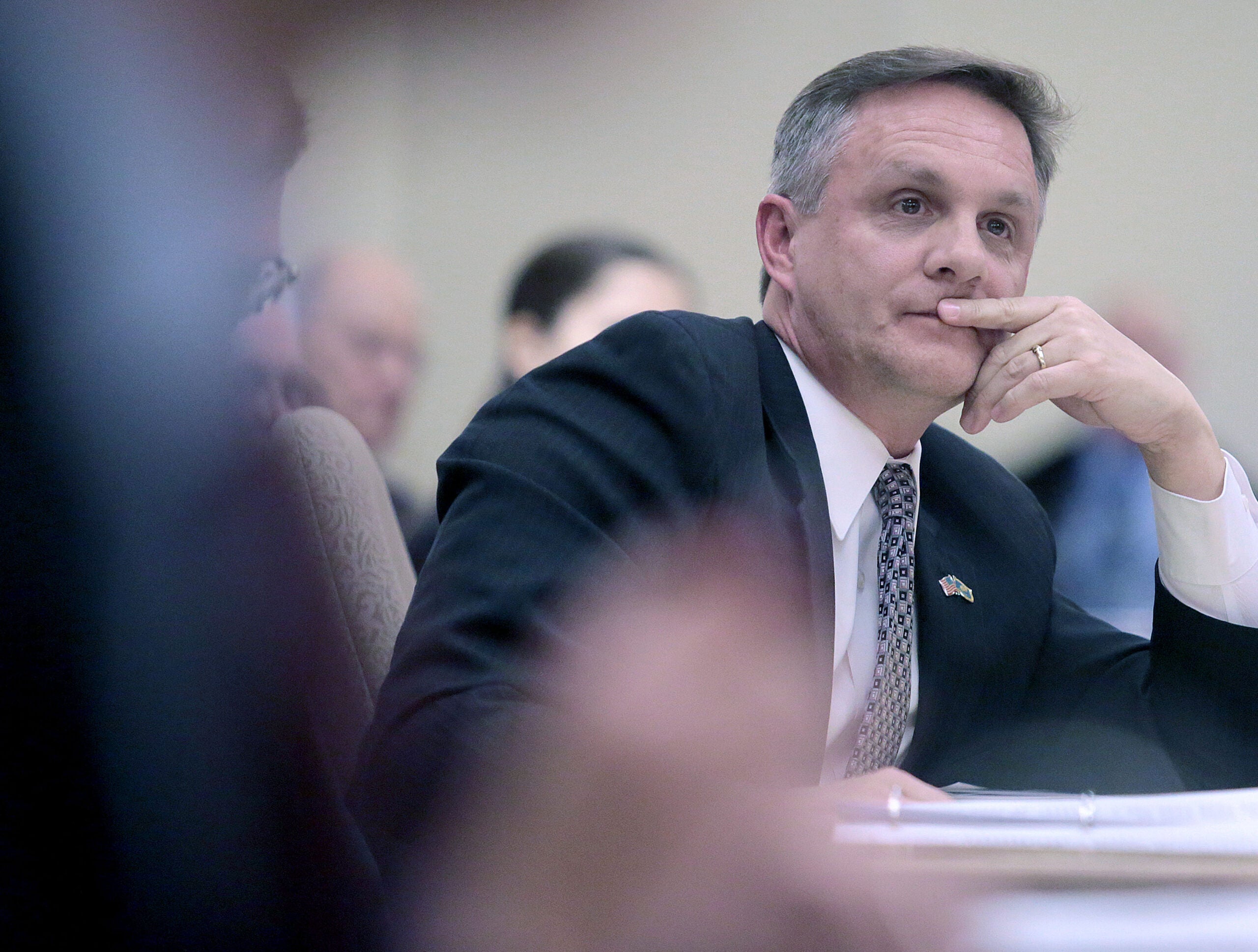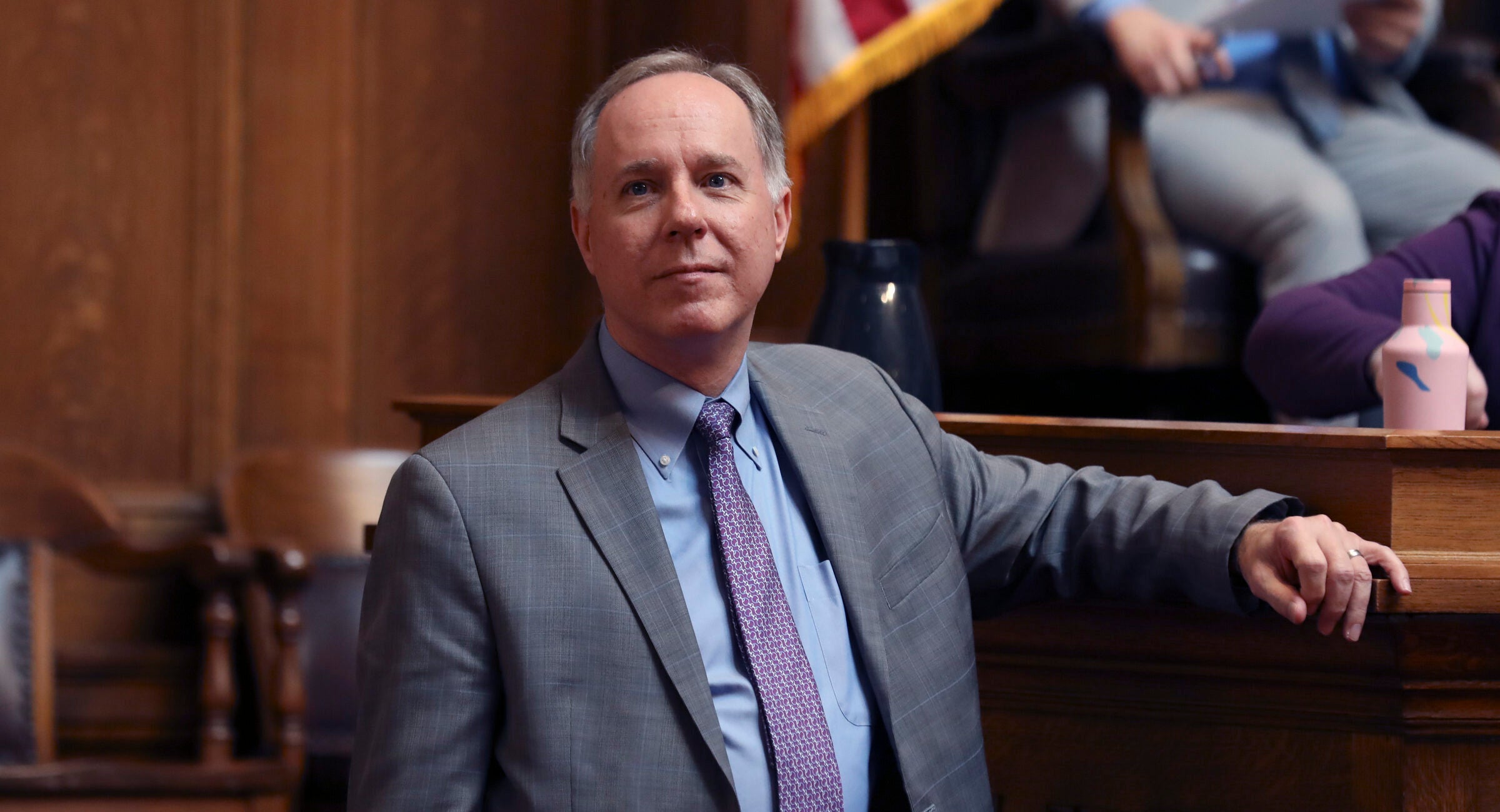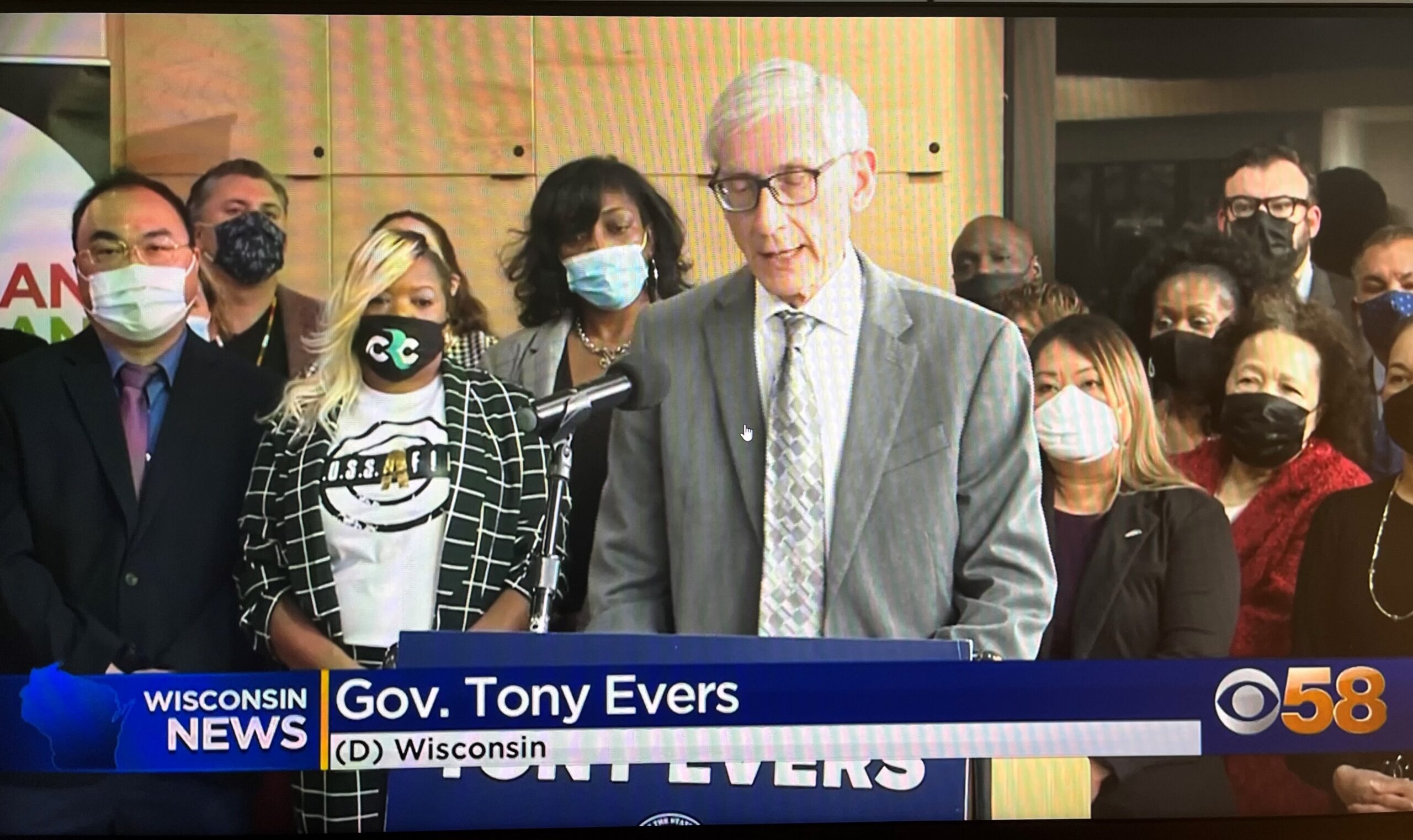Two of Gov. Scott Walker’s former cabinet members have said they were instructed not to use official email or state phones for important communications.
Peter Bildsten, the former secretary of the state Department of Financial Institutions, and Paul Jadin, the former head of the Wisconsin Economic Development Corp., said they were given the instructions in early 2011 by then-Department of Administration Secretary Mike Huebsch.
Bildsten said he used his personal cell phone instead and important documents were delivered by hand.
News with a little more humanity
WPR’s “Wisconsin Today” newsletter keeps you connected to the state you love without feeling overwhelmed. No paywall. No agenda. No corporate filter.
“And it was very inefficient,” he said. “I can remember buttoning up jackets and coats, walking through some awful weather, up the hill to the Capitol building or the DOA building from the State Office Building that my agency was based in.”
Bildsten said he doesn’t remember if Walker attended the specific meeting where this direction was given, but added, “The only conclusion that I could come to was that the administration wanted to minimize the risk of anything of any controversial emails ending up on the front page of a newspaper.”
In an email to the Wisconsin Center for Investigative Journalism, Huebsch said he didn’t give these orders to the cabinet, saying, “I did not tell them to avoid making public records. I instructed them that it didn’t matter if they were using state email, Gmail or carrier pigeon, if they were dealing with state business, it is subject to open records.”
Bildsten, a former bank executive, served just over four years under Walker, before stepping down in March. He said he resigned under pressure after refusing to promote Walker’s plan to merge his agency with the state Department of Safety and Public Services as part of the governor’s budget initiative to consolidate state government. Walker later dropped that plan.
Jadin, who left less than halfway through Walker’s first term, said he largely ignored the policy, which he found to be needlessly inefficient.
Robert Drechsel, a University of Wisconsin-Madison journalism professor and member of the state Freedom of Information Council, said such a policy appears to be aimed at shielding the public from the workings of state government.
“Over the years a remarkable range of strategies have been used to try to circumvent open records laws,” said Drechsel, a lawyer who also heads the UW-Madison Center for Journalism Ethics. “One is for government officials to communicate without creating any physical record of what they say and do. Technically, this might be legal.”
But, Drechsel added, “If the goal is to avoid creating a record that would document and provide insight into decision-making and avoid the inconvenience or embarrassment of public scrutiny, I’d say it’s ethically wrong. It is not government in the public interest.”
In an email to the Wisconsin Center for Investigative Journalism, Walker administration representative Jocelyn Webster denied there was a policy of communicating privately about state business:
“We frequently remind members of the administration that they should not email or text anything that they do not want to see on the front page of the (Milwaukee) Journal Sentinel … This statement highlights that our office complies with the open records law. The governor’s office retains email and text messages conducting state business, including those sent to/from personal emails or cell phones, and produces them in response to open records requests.”





